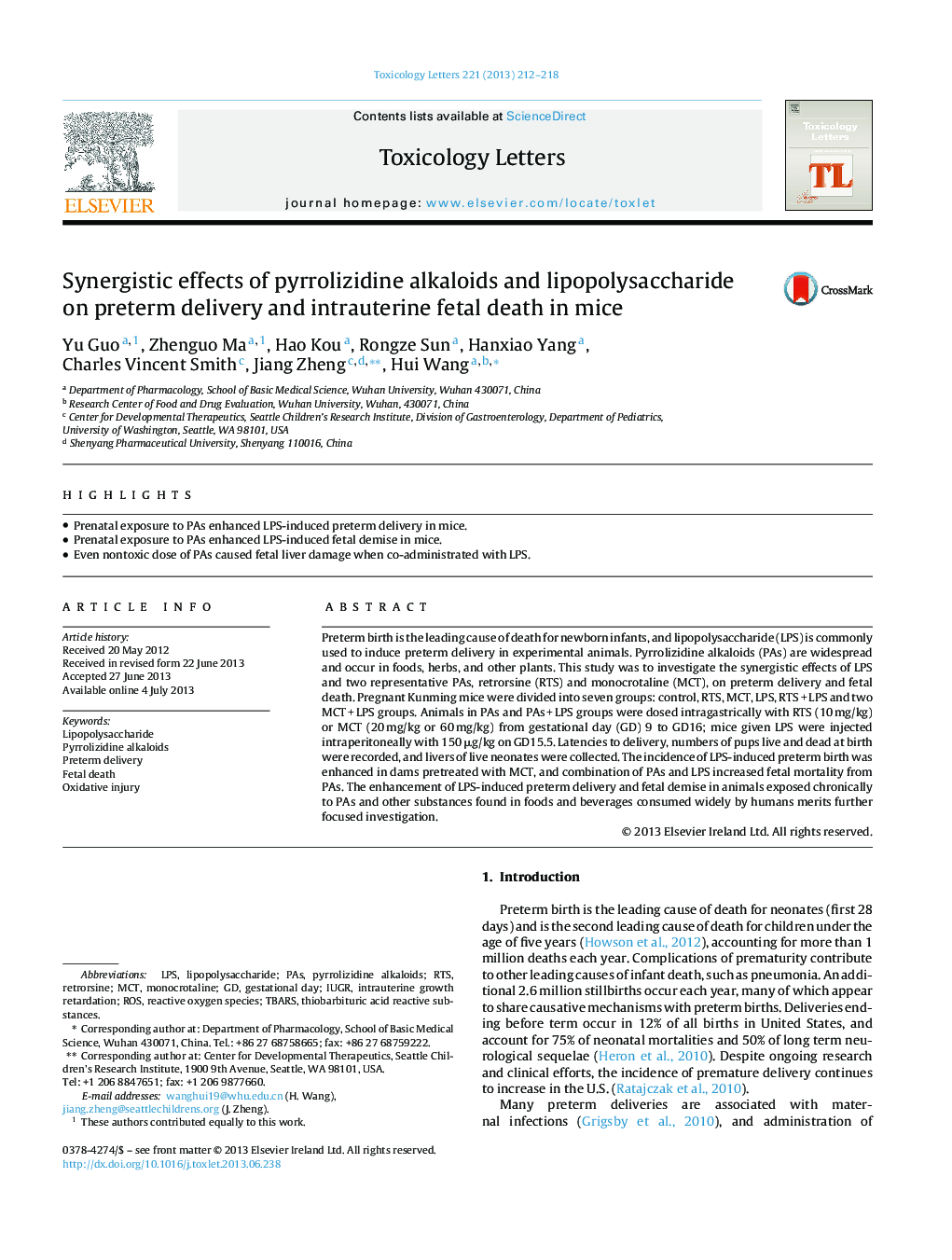| Article ID | Journal | Published Year | Pages | File Type |
|---|---|---|---|---|
| 2599172 | Toxicology Letters | 2013 | 7 Pages |
•Prenatal exposure to PAs enhanced LPS-induced preterm delivery in mice.•Prenatal exposure to PAs enhanced LPS-induced fetal demise in mice.•Even nontoxic dose of PAs caused fetal liver damage when co-administrated with LPS.
Preterm birth is the leading cause of death for newborn infants, and lipopolysaccharide (LPS) is commonly used to induce preterm delivery in experimental animals. Pyrrolizidine alkaloids (PAs) are widespread and occur in foods, herbs, and other plants. This study was to investigate the synergistic effects of LPS and two representative PAs, retrorsine (RTS) and monocrotaline (MCT), on preterm delivery and fetal death. Pregnant Kunming mice were divided into seven groups: control, RTS, MCT, LPS, RTS + LPS and two MCT + LPS groups. Animals in PAs and PAs + LPS groups were dosed intragastrically with RTS (10 mg/kg) or MCT (20 mg/kg or 60 mg/kg) from gestational day (GD) 9 to GD16; mice given LPS were injected intraperitoneally with 150 μg/kg on GD15.5. Latencies to delivery, numbers of pups live and dead at birth were recorded, and livers of live neonates were collected. The incidence of LPS-induced preterm birth was enhanced in dams pretreated with MCT, and combination of PAs and LPS increased fetal mortality from PAs. The enhancement of LPS-induced preterm delivery and fetal demise in animals exposed chronically to PAs and other substances found in foods and beverages consumed widely by humans merits further focused investigation.
